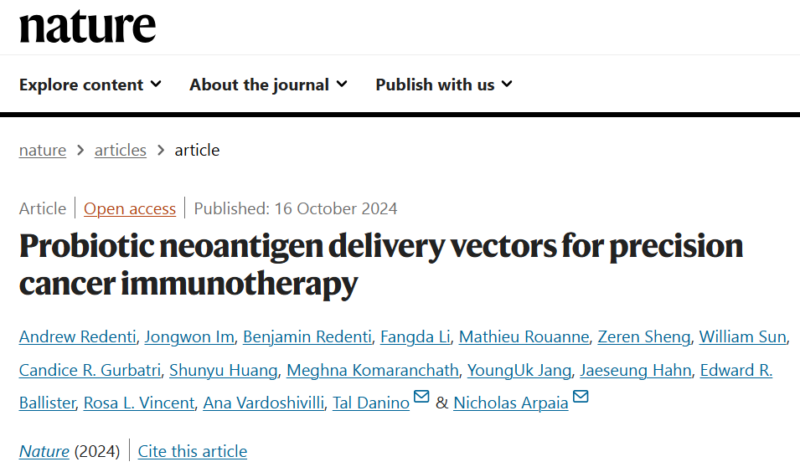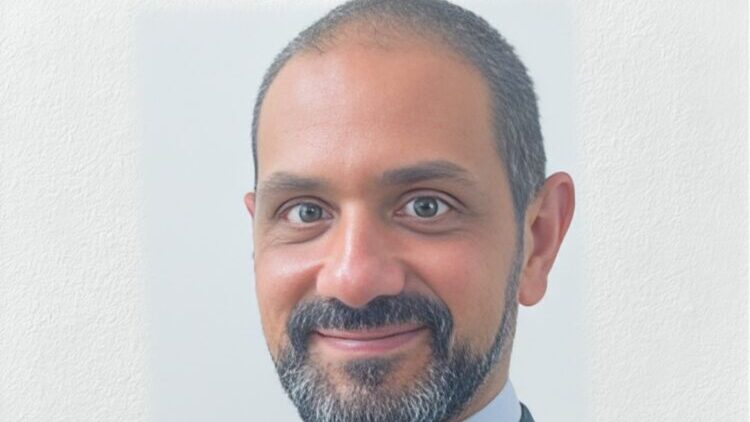Paolo Cotzia, Medical Director of Molecular Pathology and Head of Molecular Excellence at Sonic Healthcare USA, shared a post on LinkedIn:
“Microbial engineering is a fascinating field with incredible potential. This recent study published on Nature provides great insights.
Coupling the tumor-homing and immunostimulatory nature of bacteria with precise instructions for coordinated adaptive immunity towards tumor neoantigens, opens opportunities for mediating control and eradication of solid tumors.
Bioinformatic-based identification of neoantigens that are both immunogenic and able to generate T cells capable of tumor cell killing is one of the main challenges in this space.
Criteria proposed to aid neoantigen identification include: differential binding affinity of the neoepitope versus corresponding wild-type epitope, variant allele fraction (VAF) of the mutation and expression level of the mutation-containing gene.
The authors found that antigen sets encompassing both predicted MHC-I and MHC-II binding neoantigens mediated anti tumor efficacy. Interestingly, enhanced frequencies of neoantigen-specific CD4+ and CD8+ T cells were observed, MHC-I and MHC-II binding neoantigens were targeted by TILs in immunized mice, and both CD4+ and CD8+ T cells were required for efficacy of the microbial vaccination system in vivo. This agrees with the role of CD4+ and CD8+ T cells in anti tumor immunity.
These results support the targeting of both MHC-I and MHC-II binding tumor neoantigens in anti tumor immunotherapies.
This recent publication demonstrated that across distinct tumor models and genetic backgrounds, the anti tumor effect of vaccination is accompanied by modulation of the immune compartment within the tumor microenvironment (TME). The coordinated regulation of APCs, reduction of immunosuppressive myeloid, regulatory T and B cell populations, and activation of NK cells and CD4+ and CD8+ T cells together indicate the advantage of engineered microbial platforms as next-generation anti tumor vaccines that align several arms of immunity.
By using distinct tumor models the authors showed that engineered microbial vaccines significantly reduced tumor growth and achieved a portion of complete responses. This is consistent with a model whereby microbial vectors enable direct modulation of both innate and adaptive immunity and sustained neoantigen delivery within the TME to promote effective therapeutic vaccination of established tumors.
The unique ability of microbial vaccines to directly remodel the TME may promote synergy with other forms of immunotherapy, like combinatory strategies with Adoptive T cell therapy geared toward opposing resistance mechanisms and providing synergistic benefit.
The proposed system may achieve reliable eradication of established solid tumors and metastases through precision cancer immunotherapy using living anti tumor vaccines.”
Probiotic neoantigen delivery vectors for precision cancer immunotherapy
Authors: Andrew Redenti, Jongwon Im, Benjamin Redenti, Fangda Li, Mathieu Rouanne, Zeren Sheng, William Sun, Candice R. Gurbatri, Shunyu Huang, Meghna Komaranchath, YoungUk Jang, Jaeseung Hahn, Edward R. Ballister, Rosa L. Vincent, Ana Vardoshivilli, Tal Danino and Nicholas Arpaia.

Paolo Cotzia is the Medical Director of Molecular Pathology and Head of Molecular Excellence at Sonic Healthcare USA, as well as the Medical Director of Sonic Reference Laboratory. He is a board-certified pathologist specialized in oncologic surgical pathology and molecular genetics, with expertise in biomarker discovery, molecular diagnostics, digital pathology, AI, biobanking, and clinical trials.


